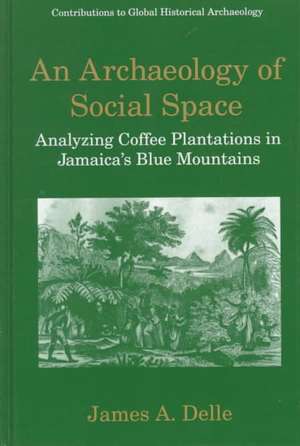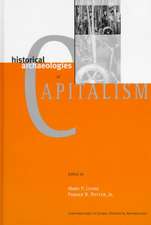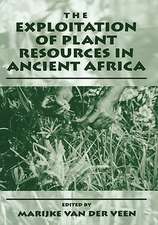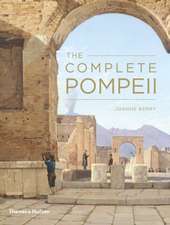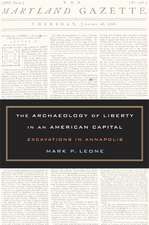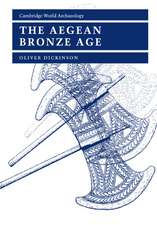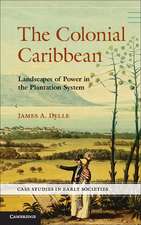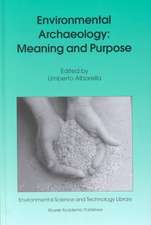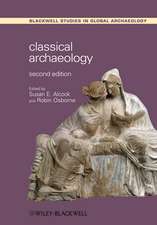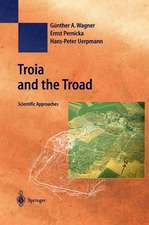An Archaeology of Social Space: Analyzing Coffee Plantations in Jamaica’s Blue Mountains: Contributions To Global Historical Archaeology
Autor James A. Delle Cuvânt înainte de Mark P. Leoneen Limba Engleză Hardback – 30 apr 1998
| Toate formatele și edițiile | Preț | Express |
|---|---|---|
| Paperback (1) | 638.43 lei 6-8 săpt. | |
| Springer Us – 31 mai 2013 | 638.43 lei 6-8 săpt. | |
| Hardback (1) | 643.84 lei 6-8 săpt. | |
| Springer Us – 30 apr 1998 | 643.84 lei 6-8 săpt. |
Din seria Contributions To Global Historical Archaeology
- 15%
 Preț: 640.24 lei
Preț: 640.24 lei - 15%
 Preț: 642.36 lei
Preț: 642.36 lei - 15%
 Preț: 643.84 lei
Preț: 643.84 lei -
 Preț: 399.12 lei
Preț: 399.12 lei - 15%
 Preț: 639.90 lei
Preț: 639.90 lei - 15%
 Preț: 644.82 lei
Preț: 644.82 lei - 15%
 Preț: 636.80 lei
Preț: 636.80 lei - 18%
 Preț: 949.23 lei
Preț: 949.23 lei - 15%
 Preț: 640.24 lei
Preț: 640.24 lei - 15%
 Preț: 640.06 lei
Preț: 640.06 lei - 15%
 Preț: 641.71 lei
Preț: 641.71 lei - 15%
 Preț: 646.75 lei
Preț: 646.75 lei - 15%
 Preț: 642.03 lei
Preț: 642.03 lei -
 Preț: 390.46 lei
Preț: 390.46 lei -
 Preț: 391.79 lei
Preț: 391.79 lei - 15%
 Preț: 642.51 lei
Preț: 642.51 lei - 15%
 Preț: 647.73 lei
Preț: 647.73 lei -
 Preț: 383.71 lei
Preț: 383.71 lei -
 Preț: 387.96 lei
Preț: 387.96 lei - 15%
 Preț: 643.99 lei
Preț: 643.99 lei - 18%
 Preț: 968.65 lei
Preț: 968.65 lei - 15%
 Preț: 639.08 lei
Preț: 639.08 lei - 15%
 Preț: 636.63 lei
Preț: 636.63 lei - 18%
 Preț: 954.93 lei
Preț: 954.93 lei -
 Preț: 384.86 lei
Preț: 384.86 lei - 15%
 Preț: 641.85 lei
Preț: 641.85 lei - 15%
 Preț: 641.53 lei
Preț: 641.53 lei - 15%
 Preț: 643.99 lei
Preț: 643.99 lei - 15%
 Preț: 645.28 lei
Preț: 645.28 lei - 18%
 Preț: 733.46 lei
Preț: 733.46 lei
Preț: 643.84 lei
Preț vechi: 757.46 lei
-15% Nou
Puncte Express: 966
Preț estimativ în valută:
123.24€ • 133.91$ • 103.59£
123.24€ • 133.91$ • 103.59£
Carte tipărită la comandă
Livrare economică 21 aprilie-05 mai
Preluare comenzi: 021 569.72.76
Specificații
ISBN-13: 9780306458507
ISBN-10: 0306458500
Pagini: 243
Ilustrații: XXIII, 243 p.
Dimensiuni: 152 x 229 x 19 mm
Greutate: 0.51 kg
Ediția:1998
Editura: Springer Us
Colecția Springer
Seria Contributions To Global Historical Archaeology
Locul publicării:New York, NY, United States
ISBN-10: 0306458500
Pagini: 243
Ilustrații: XXIII, 243 p.
Dimensiuni: 152 x 229 x 19 mm
Greutate: 0.51 kg
Ediția:1998
Editura: Springer Us
Colecția Springer
Seria Contributions To Global Historical Archaeology
Locul publicării:New York, NY, United States
Public țintă
ResearchCuprins
1. Introduction.- 2. Theoretical Background: Capitalism, Crisis, and Social Space.- 3. The Historical Background: The Jamaican Political Economy, 1790–1865.- 4. The Focus of Analysis: Coffee Plantations in the Yallahs Drainage.- 5. Analyzing Cognitive Space: The Imagined Spaces of the Plantation Theorists.- 6. The Spatialities of Coffee Plantations in the Yallahs River Drainage: 1790–1834.- 7. Postemancipation Developments: 1834–1865.- 8. Epilogue.- References.
Recenzii
`Valuable...This theoretically sophisticated work belongs in serious anthropology, geography, plantation, and Caribbean studies collections. Upper-division undergraduates and above.'
Choice (November 1998)
`This volume, a reworking of Delle's doctoral dissertation, is published in the Contribution to Global Archaeology Series. In Chapter 1, Delle lays out a Marxist approach. Following James Deetz, he defines historical archaeology as the archaeology of capitalism, of the study of European colonialism. Delle reviews previous spatial analyses of colonialism, including contributions to community studies and garden, landscape, and plantation archaeology. He places his work within the latter category: a study of the negotiation of landscapes and spaces on Jamaican coffee plantations from 1790, when coffee was first produced in the Blue Mountains, until 1865, by which time coffee production in this region had ceased. Not coincidentally, during this period the British slave trade was banned and slavery abolished.'
Journal of Anthropological Research
`Overall, Delle's work is a well-written and interestingly conceived study in an area and industry that has received little attention. The book is beautifully illustrated with photographs, line drawings, historical lithographs, and historic maps.'
Historical Archaeology, 34:2
Choice (November 1998)
`This volume, a reworking of Delle's doctoral dissertation, is published in the Contribution to Global Archaeology Series. In Chapter 1, Delle lays out a Marxist approach. Following James Deetz, he defines historical archaeology as the archaeology of capitalism, of the study of European colonialism. Delle reviews previous spatial analyses of colonialism, including contributions to community studies and garden, landscape, and plantation archaeology. He places his work within the latter category: a study of the negotiation of landscapes and spaces on Jamaican coffee plantations from 1790, when coffee was first produced in the Blue Mountains, until 1865, by which time coffee production in this region had ceased. Not coincidentally, during this period the British slave trade was banned and slavery abolished.'
Journal of Anthropological Research
`Overall, Delle's work is a well-written and interestingly conceived study in an area and industry that has received little attention. The book is beautifully illustrated with photographs, line drawings, historical lithographs, and historic maps.'
Historical Archaeology, 34:2
